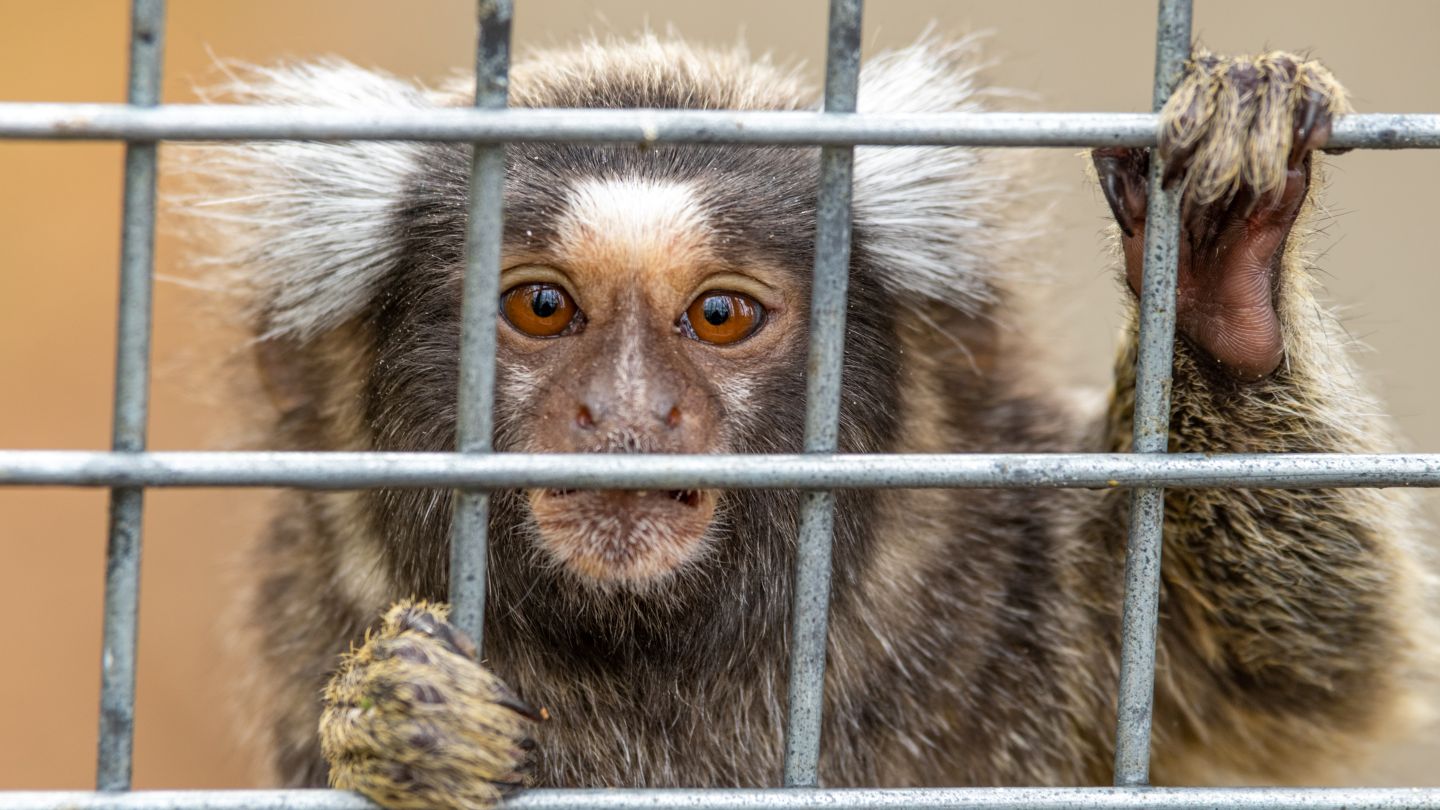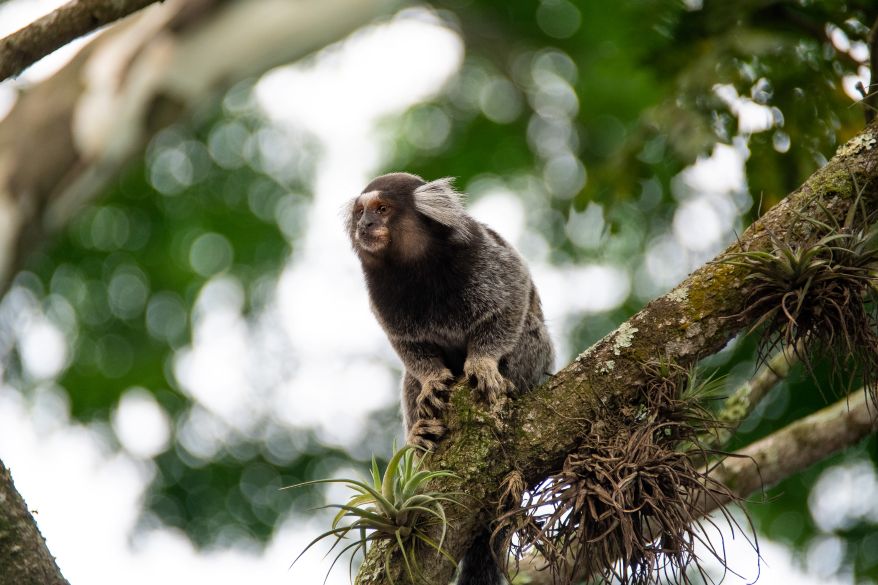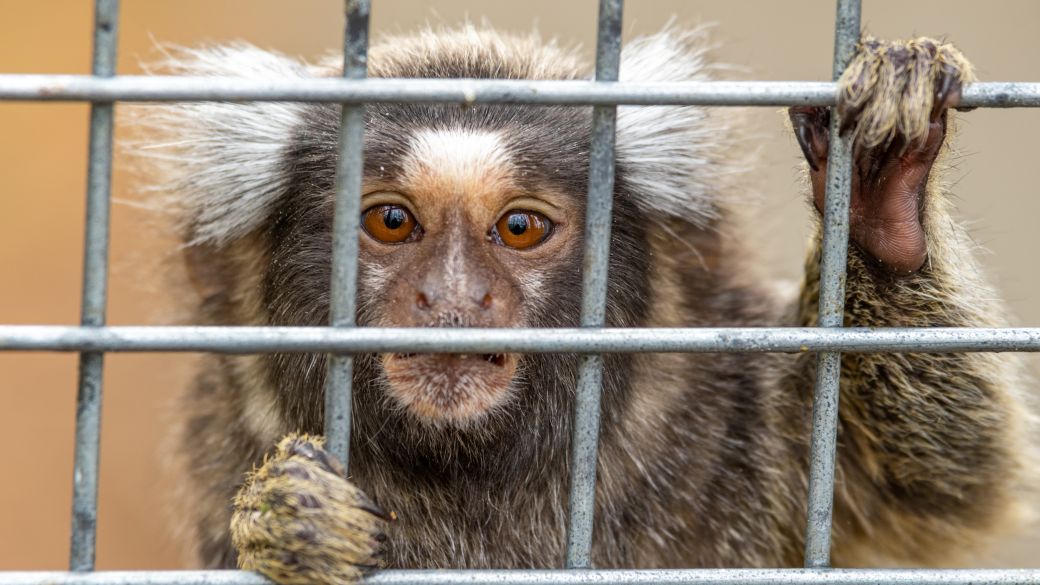

Rousset Primatology Station: entire lines of primates suffering in laboratories
After taking legal action to obtain transparency around the fate of primates being used in France, One Voice finally received several — incomplete — documents from the CNRS and the University of Aix-Marseille.
Although they are only partial, these documents already paint a damning picture. They make it possible to reconstruct the journey of several marmosets born, transferred or held at the CNRS breeding facility in Rousset, and to glimpse the real conditions of the ‘life’ of primates being used for experiments in France.
Entire families of primates victims of experiments over several generations
At the CNRS site in Rousset, suffering is not the lot of a single individual: it is passed on from generation to generation. Entire lines of primates are being exploited there.
- For example, Fenouil, a marmoset who spent several years in Rousset, died in 2022 after undergoing numerous experiments. But he was also used for breeding. Eight babies were born to him, including Nuphar, Narcisse and Navet, who were born in 2017.
- Nuphar died the same year as his father. A few days before their deaths, both had undergone injections into the brain as part of the same experimental project. His brothers, Narcisse and Navet, met a similar end: they were killed after being subjected to the same experimental protocol.
- The case of Kaki, another marmoset, illustrates this infernal mechanism. He died in 2023 from an unknown cause, leaving behind descendants who also died in unclear circumstances: Orange, born in 2018, and Pépin, born in 2019 in Rousset, both died without any cause being given.
- Salakis, born in 2021 in Rousset, was exploited for breeding. She gave birth to five babies—their fate remains unknown.
- Her brother Sauvage, born the same year, suffered serious injuries to the throat and arms. Last May, one of his claws was torn off following ‘a mistake by the handler’, who allegedly pulled on him while he was clinging to the cage.
In the wild, marmosets are the little chatterboxes of the jungle
These South American primates live in groups and are very talkative. They even give each other names, using specific vocalisations. Cooperation is a ubiquitous practice in marmoset groups, particularly when it comes to raising the young, regardless of gender.

In laboratories, marmosets experience constant distress
And yet, the fate of many of these small mammals will be captivity, solitude and suffering. France remains the leading European country with respect to the use of animals, including primates, in its laboratories, in contradiction with European objectives to reduce their numbers. This is also a far cry from the ambitions of countries such as the United States, where the National Institute of Health (NIH) intends to reverse its practices within five years, making non-animal methods the norm, with those using living beings becoming the minority alternative.
With this expansion of the CNRS site in Rousset, our country and the research community are perpetuating cruel and obsolete practices, financed by millions of euros of public money. Join us in demanding that this type of project be abandoned!

To learn more about the suffering of these primates:
- Rousset Primatology Station: the same fate for all the different primates exploited
- Take part in the consultation, and express your opposition to the project
- Sign the petition